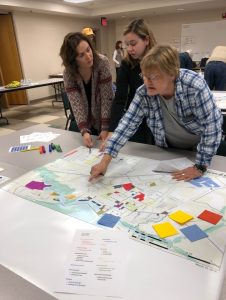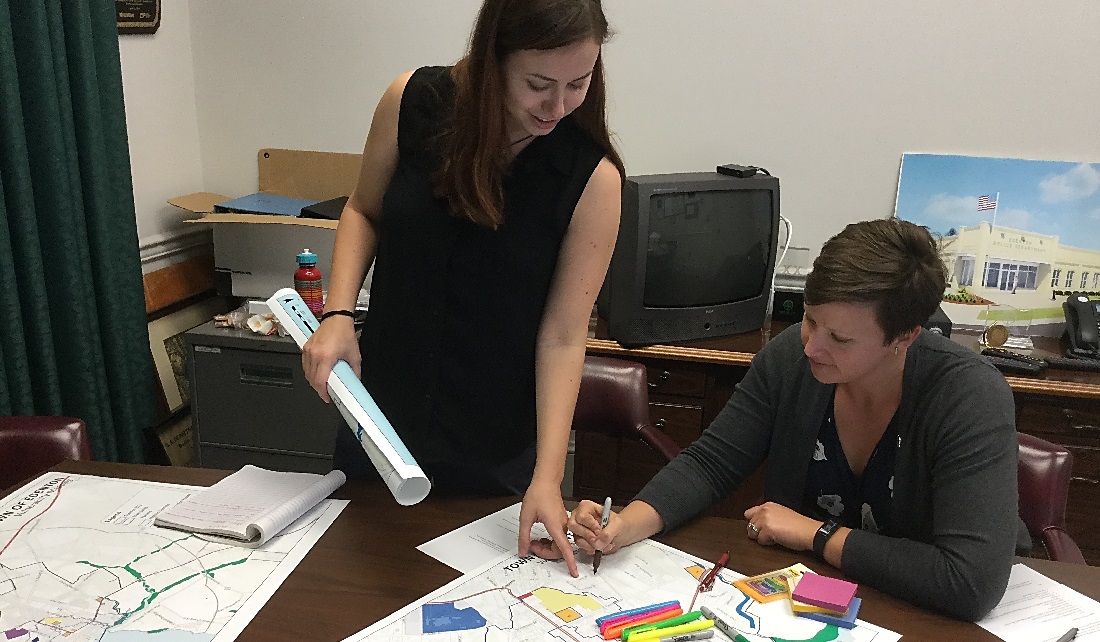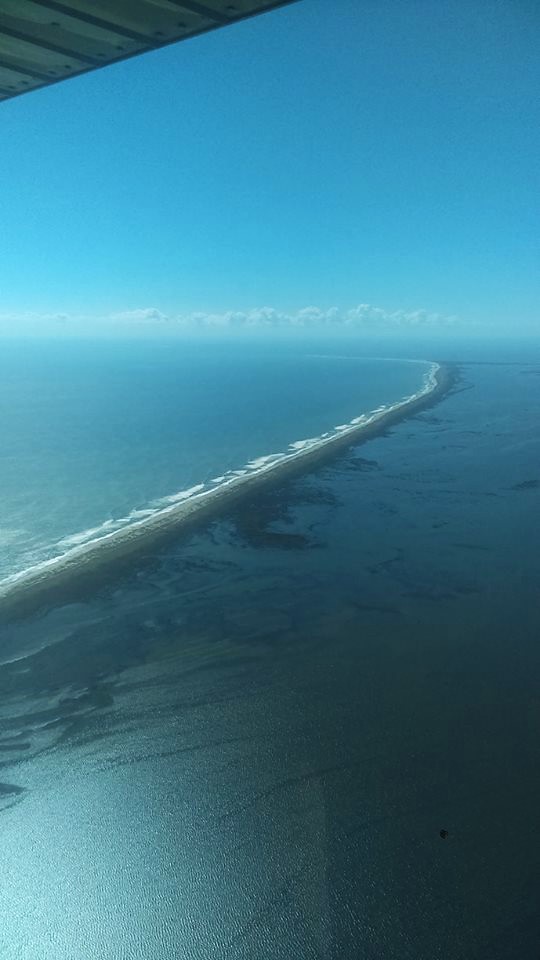Indiana-Illinois Sea Grant (IISG) is part of a national network that leads, manages and coordinates a variety of initiatives, including interviewing and selecting fellows for the NOAA Coastal Management Fellowship Program (CMF). Monica Gregory was nominated to the NOAA CMF program by IISG while completing her Public Affairs in Environmental Policy master’s program at Indiana University-Bloomington’s School of Public and Environmental Affairs. During the final selection process, Gregory was matched with the North Carolina Division of Coastal Management.

Monica Gregory (center) works with staff and residents in Edenton, North Carolina in 2018.
Gregory moved to Beaufort, North Carolina shortly after obtaining her MPA. Over the course of her two-year fellowship, she worked on local-scale vulnerability assessments with government officials and community members across the coastline, from Pine Knoll Shores to the northern Outer Banks. Gregory’s work with the Division of Coastal Management created a pathway to more comprehensive state-level guidance on adaptation planning in the face of sea level rise, increased flood risk and other hazards related to climate change. Her time with the fellowship program honed many of her professional skills, including public meeting facilitation, survey design and research, vulnerability assessment design, GIS knowledge and intergovernmental coordination.
As her fellowship came to a close, Gregory accepted a position working on resilience and sea level rise adaptation for Miami-Dade County, Florida. She now works in the Office of Resilience in Miami to coordinate research between County departments, universities and consultants on a variety of systems impacted by current and future sea level rise, including infrastructure, natural systems and the economy. She is also working on projects related to the upcoming Rockefeller Foundation’s 100 Resilient Cities Greater Miami and the Beaches resilience strategy, which takes a holistic view of community resilience by identifying the shocks and stresses experienced by the region, from sea level rise and flooding to poverty and economic opportunity. Her skillset from Indiana University’s MPA program combined with her past experience working on sea level rise and community resilience through the NOAA CMF program were crucial to her professional development.
A personal note from Monica Gregory: “I was very fortunate to work with many capable, passionate people at the Division of Coastal Management and within local communities around North Carolina: Pine Knoll Shores, Oriental, Edenton, Duck and Hatteras Village. In the wake of Hurricane Florence, my thoughts are with the communities and people I worked with for two years, as well as all communities across the Carolinas, as they assess the damage wrought by the storm and seek a resilient path forward.”
Learn more about our fellowship opportunities online, or contact Angie Archer at (765)496-3722, amcbride@purdue.edu.



